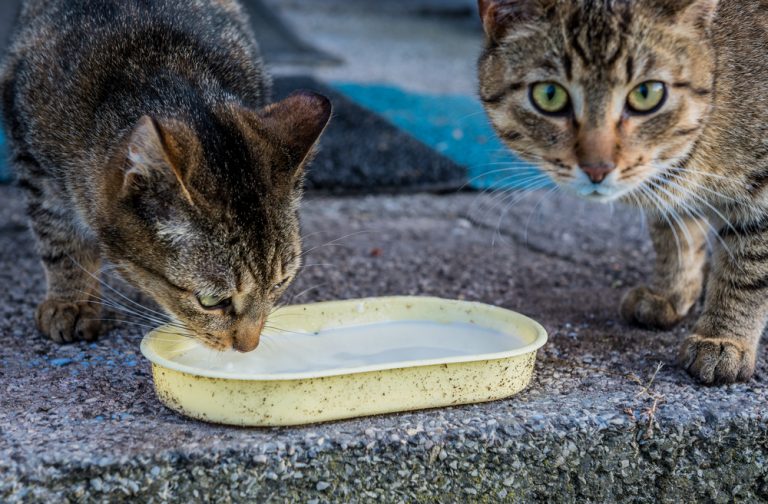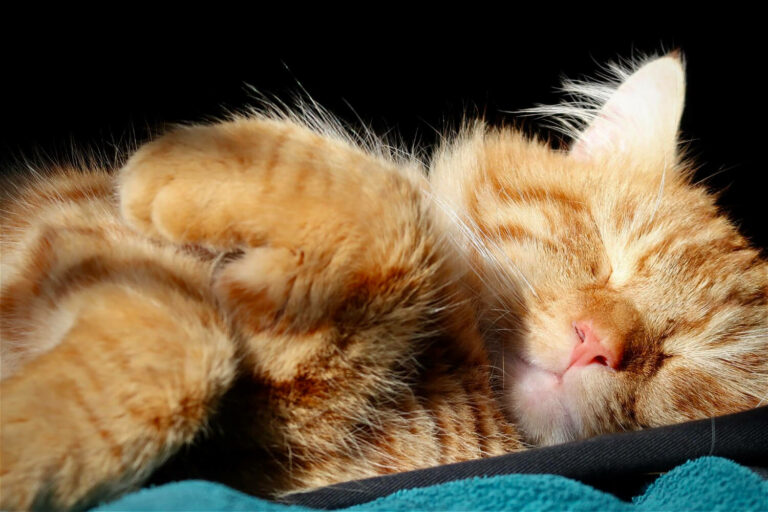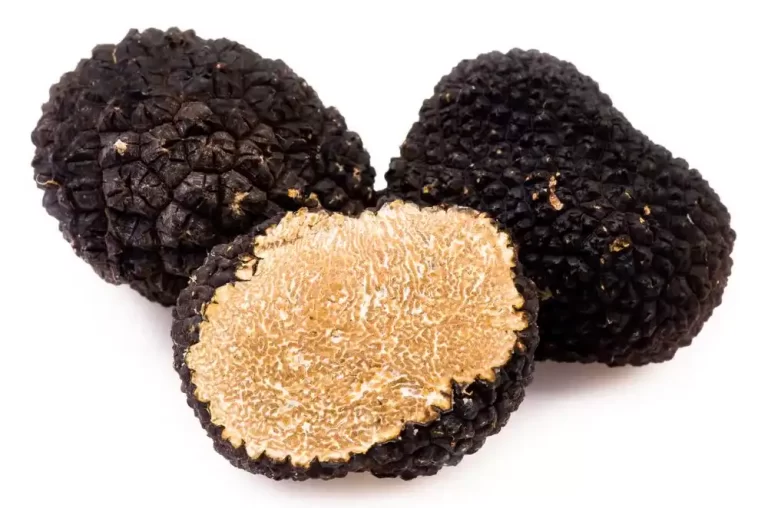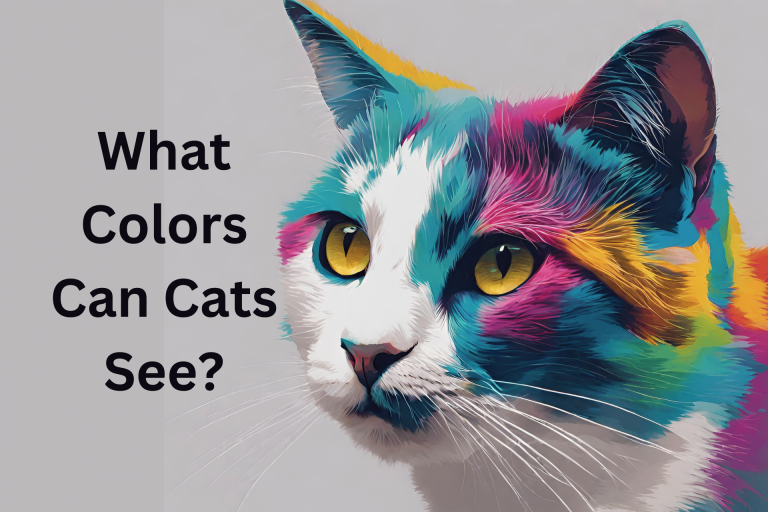6 Surprising Benefits of Giving Your Cat Bamboo Water – Should You Try It?
Did you know that cats can safely drink bamboo water? In this post, we’ll explore the benefits and risks of bamboo water for cats. Read on to learn more about how bamboo water can benefit your furry friend.
Can Cats Drink Bamboo Water?
Yes, cats can drink bamboo water. It is not harmful and can be beneficial, provided that the bamboo is healthy. Bamboo water can filter out pollutants and contaminants from the water supply, making it safe for cats to ingest.
Can Cats Eat Bamboo Plants?
Yes, cats can eat bamboo plants, provided they are of the non-toxic variety. The leaves of lucky bamboo, however, are poisonous and should not be consumed. Older leaves contain more protein than younger leaves – up to 22%, making them a nutritional treat for cats.
Scientists suggest that grass-eating may help cats eliminate intestinal parasites and boost the activity of the digestive tract’s muscles. Plant-eating may also be linked to the removal of hairballs.
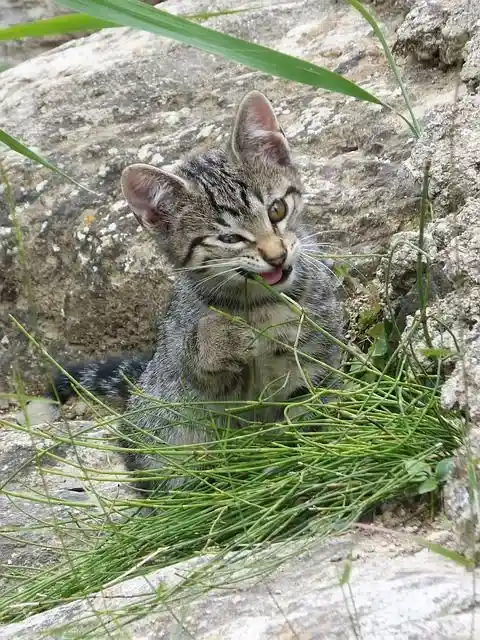
Curious to know other interesting reasons why your kitto may be chowing on grass or other plans? Check out this cool post I wrote on cats eating grass.
Can cats eat bamboo leaves?
If you have true bamboo growing in your home and your cat decides to nibble on some of its leaves, there is no need to worry as it is safe for your furry friend. However, if your cat consumes a large amount of bamboo, they may experience diarrhea, vomiting, and in severe cases, seizures.
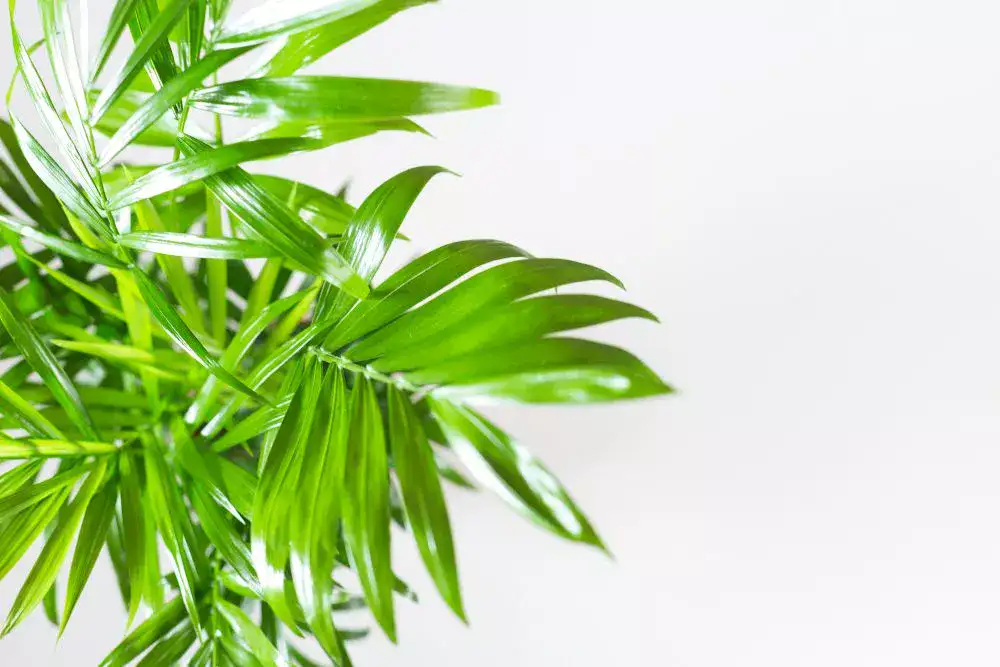
It’s important to note that this only applies to true bamboo species, not imitations like “Lucky Bamboo” or “Heavenly Bamboo,” which can be toxic to cats.
As always, it’s best to monitor your pet’s behavior and consult with a veterinarian if you notice any unusual symptoms.
Is Bamboo Water Safe for Cats?
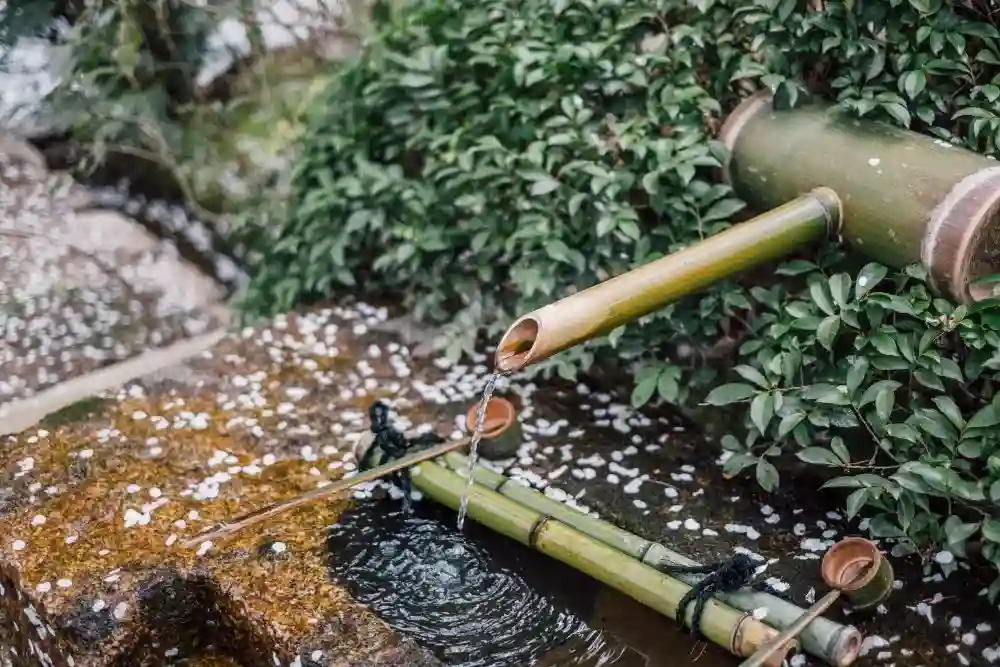
Yes, bamboo water is safe for cats. The American Society for the Prevention of Cruelty to Animals (ASPCA) declares bamboo to be non-toxic, this is only true for a handful of the most common bamboo varieties.
Bamboo comes in a variety of kinds, some of which are toxic to cats and others which are totally harmless. True bambusoideae bamboo species are non-toxic and considered safe for cats.
To ensure the safety of your kitty, it is important to understand which species of bamboo you have, as well as to fertilize the bamboo only once in the spring and once in the fall, as fertilizers may contain chemicals that are harmful if ingested.
Benefits of Drinking Bamboo Water for Cats
1. Bamboo Contains Essential Nutrients and Minerals That Can Help Keep Your Cat Healthy
Bamboo is a great source of nutrition for cats. It contains 22% protein, making it a great supplement to the animal proteins cats should be getting in their diet. Additionally, bamboo leaves are a good source of essential vitamins and minerals like Vitamin A, Vitamin B6, Calcium, Iron, Magnesium, Potassium, Zinc, and Sodium. These vitamins and minerals help to support the health of the feline digestive system, as well as their immune system and overall health.

The protein found in bamboo can help cats maintain healthy muscle mass and energy levels, while the minerals and vitamins can help cats get the nutrition they need to stay healthy. The Vitamin A found in bamboo leaves can help maintain eyesight and skin health, while Vitamin B6 helps with nerve and cognitive functions.
Calcium helps maintain strong bones and teeth, while Iron supports red blood cell production. Magnesium helps regulate muscle and nerve functions while Potassium helps regulate blood pressure and Zinc helps support the immune system.
2. Bamboo Water Can Help Hydrate Your Cat and Prevent Dehydration
Bamboo water can help hydrate cats and prevent dehydration by removing impurities and toxins from the water supply. Bamboo is able to filter out pollutants and contaminants, making it a much healthier option for cats than other types of water.
Cats tend to be finicky water drinkers and will rarely hydrate. They are even more finicky with choosing their hydration sources and that’s why you’ll see them drinking plant water or bathroom water. While hydration is the ultimate goal, it’s important they only drink from safe places (read fountains and water bowls).
Here is a cool article on how to calculate the amount of water your cat needs per day.
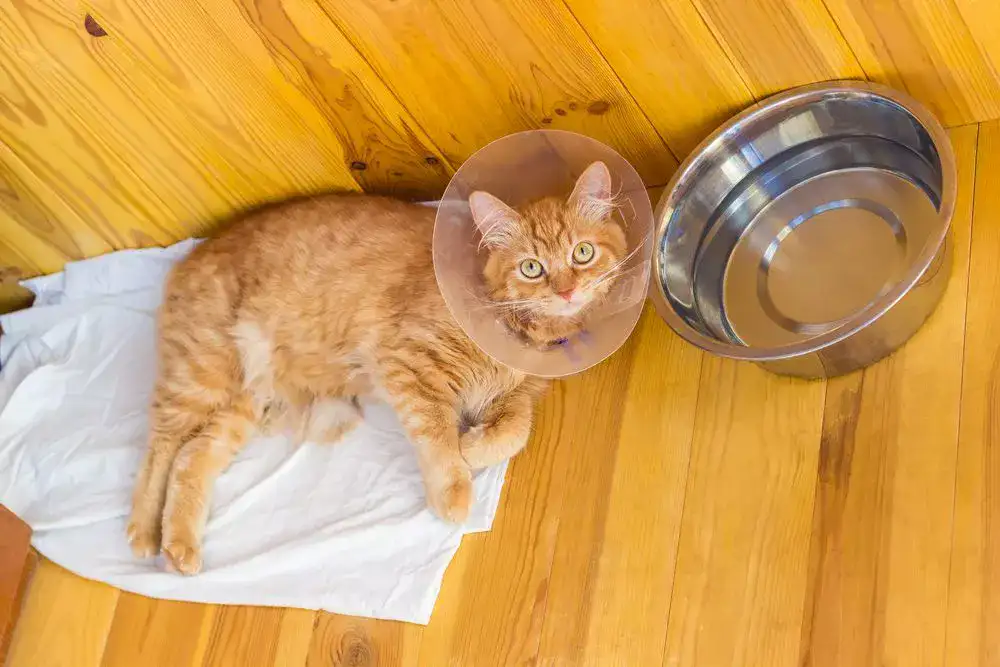
3. Bamboo Water Can Aid in Digestion and Prevent Stomach Discomfort
Bamboo water can help with digestion and reduce stomach discomfort in cats by filtering out impurities and toxins from the water supply. As long as the bamboo is healthy, it removes pollutants and contaminants from the water supply.
Antacid therapy, such as pepcid or zantac, can also help to ease nausea and stomach upset.
Eating light, easily digestible foods such as boiled chicken, boiled white fish, scrambled eggs, or veterinary prescription diets can also help.
Keeping an eye on the cat’s hydration status and checking for signs of dehydration is also important.
4. Bamboo water can aid in energy and stamina
Bamboo water is rich in essential vitamins and minerals such as vitamin C, magnesium, and potassium, which can help boost energy levels.
The plant is also packed with antioxidants, which can help reduce the effects of oxidative stress and inflammation, allowing for better stamina and endurance.
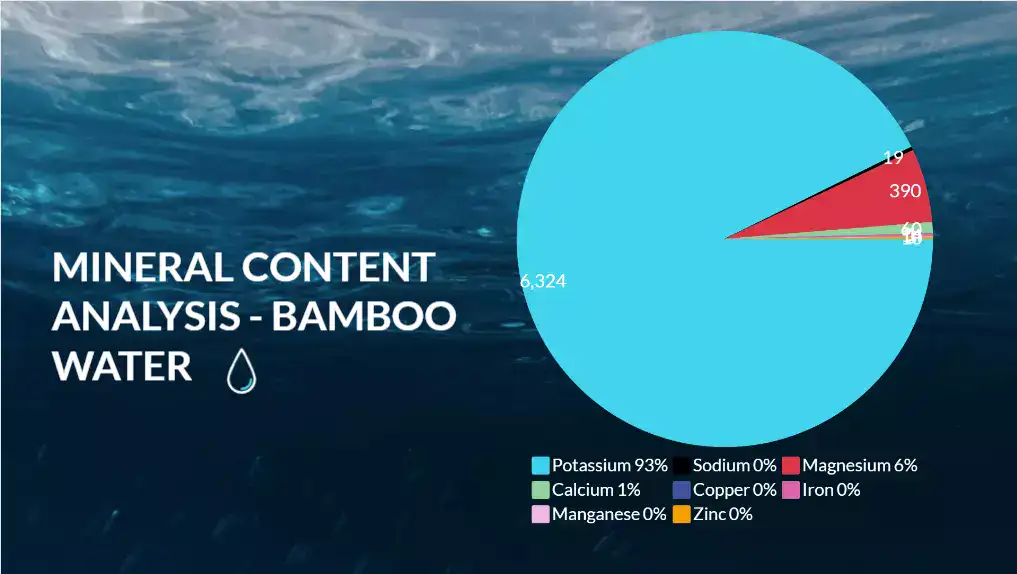
Furthermore, bamboo water has high levels of silica, which works to strengthen bones and teeth and improve general health.
5. Bamboo Water Can Help Relieve Bloating and Discomfort
Bamboo water can help to treat bloating and discomfort in cats by acting as a natural filter and removing pollutants and contaminants from the water supply.
This can, in turn, help to reduce the symptoms of nausea, appetite loss, vomiting, lethargy, and diarrhea that are associated with drinking contaminated water.
Antacid therapy can be used to further reduce the GI upset, which can help to reduce bloating and discomfort in cats.
Dangers of Drinking Bamboo Water for Cats
1. Bamboo May Contain Toxins That Are Dangerous to Cats
Bamboo is not inherently toxic to cats, but there are many varieties of bamboo plants that can be potentially dangerous to cats.
One of the most common toxic bamboo plants is the “Lucky Bamboo” or “Heavenly Bamboo” which contains a number of potentially toxic compounds including saponins, calcium oxalate, and alkaloids.

Saponins are toxic because they irritate the mucous membranes and can cause vomiting and diarrhea. Calcium oxalate is toxic because it can damage the kidneys and lead to kidney failure.
Alkaloids are toxic because they can cause seizures and other neurological symptoms. Ingesting too much of any of these toxic compounds can be potentially deadly for cats.
2. Bamboo May Cause Digestive Problems in Cats
Consuming bamboo water can affect a cat’s digestive system in a number of ways. The effects depend on the variety of bamboo eaten and how much was consumed.
Non-toxic bamboo provides protein and fiber to a cat’s diet, which can be beneficial to the digestive system and help with digestion.
If a cat isn’t used to as much fiber in their diet, they may experience diarrhea.
On the other hand, if a cat eats a toxic variety, such as Lucky bamboo, they may experience a number of symptoms, including:
- Vomiting (sometimes with blood)
- Drooling, depression
- Dilated pupils
- Weakness
- Lack of coordination
- Heart rate increase
- Coma
- Respiratory failure
- In serious cases, poisoning may even lead to death.
If your cat ingests a hazardous bamboo plant, it is important to seek medical help immediately.
3. Bamboo May Cause Allergic Reactions in Cats
Although uncommon, some cats may be allergic to bamboo. Signs of an allergic reaction include:
- Itchy skin
- Swollen body parts
- Coughing, sneezing or whizzing
- Frothing
- Drooling, vomiting
- Lethargy
Incase you observe any of the above symptoms, contact your veterinarian immediately.
FAQs
Is Bamboo Poisonous to Cats? What Type of Bamboo Is Safe for Cats to Eat?
True bamboo species are non-toxic to cats. However, some popular bamboo plants like Lucky Bamboo, Heavenly Bamboo, Nandina, Sacred Bamboo, and Bamboo Palm can be harmful to cats. Cats can safely consume true bambusoideae bamboo since it is non-toxic.
Is lucky bamboo plants toxic to cats?
Lucky bamboo is hazardous, making it unsafe for cats, dogs, and other animals to consume. Although it is non-toxic and beneficial for people, it can be very dangerous for pets.
The stalks or shoots of Lucky Bamboo contain Taxiphyllin, a cyanogenic glycoside, and saponins, which can cause cyanide poisoning.
Cat ate lucky bamboo leaves: Can lucky bamboo kill cats?
Cats should not eat lucky bamboo leaves as they are poisonous to them. The harmful saponins are present in every part of the plant, including the leaves.
The leaves and shoots of Lucky Bamboo have relatively high concentrations of saponins, making them more toxic than other parts. Ingestion of Lucky Bamboo shoots is much more fatal than leaves.
What Are the Signs of Bamboo Poisoning in Cats?
Signs of bamboo poisoning in cats may include vomiting, nausea, abdominal pain, diarrhea, dilated pupils, anxiety, drooling, weakness, lack of coordination, appetite loss, increased heart rate, depression, respiratory difficulties, or seizures.
Other signs to look out for are plant residues or leftovers in the cat’s mouth, broken, swatted, or strangled foliage or stems, fallen bamboo leaves or squished stems on the floor, or vomit. If you suspect your cat has eaten bamboo, contact your vet and express your worries.
How can I prevent my cat from eating bamboo?
Make your plants smell disgusting by spraying them with pet repellents that are specifically designed for cats.
You can start by placing citrus peels on the soil to deter your cat from eating Bamboo leaves.
Additionally, you can hang organza drawstring bags with citrus peels or pet repellents from parts of the Bamboo plant.
What bamboo varieties should I avoid giving to my cat?
When it comes to owning cats and bamboo plants, it’s important to be aware of which varieties should be avoided. Some bamboo plants, such as Dracaena Sanderiana (lucky bamboo or ribbon plant), can be hazardous to cats. Eating this plant can produce dilated pupils, stomach discomfort, increased heart rate, and drooling.
Other bamboo plants, such as Phyllostachys aurea, Smilax laurifolia, and Chamaedorea Elegans, are safe for cats. These plants are from the bambusoideae family, which is non-toxic to cats and other animals.
When selecting a bamboo plant for your cat, it is important to examine the scientific names of the plant.
The American Society for the Prevention of Cruelty to Animals (ASPCA) provides a comprehensive list of toxic and non-toxic plants for cats, dogs, and horses on their website. This list can help you determine whether the bamboo variety you are considering is safe for your pet.
In general, it is best to avoid providing cats with any type of bamboo plant that is not from the bambusoideae family.
Additionally, if you are unsure of a plant’s toxicity, it is best to err on the side of caution and keep the plant away from your cat.
Are there any home remedies for treating bamboo poisoning in cats?
Yes, there are home remedies for treating bamboo poisoning in cats.
These include:
- Getting your cat to a well-ventilated, open area with light to ensure easy breathing
- Gently rinsing off their mouth with saline, milk or clean water to remove any plant residue
- Wrapping the cat in a soft towel to keep them calm
- Feeding them a gram of activated carbon powder per pound of body weight to adsorb toxins
- Avoiding feeding them with any food unless recommended by the vet.
Additionally, it is important to monitor the cat for 6-12 hours to see if the symptoms improve on their own.


